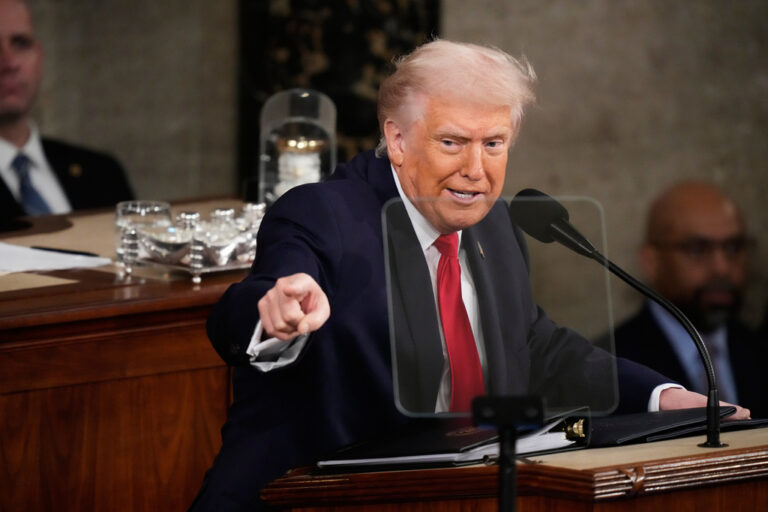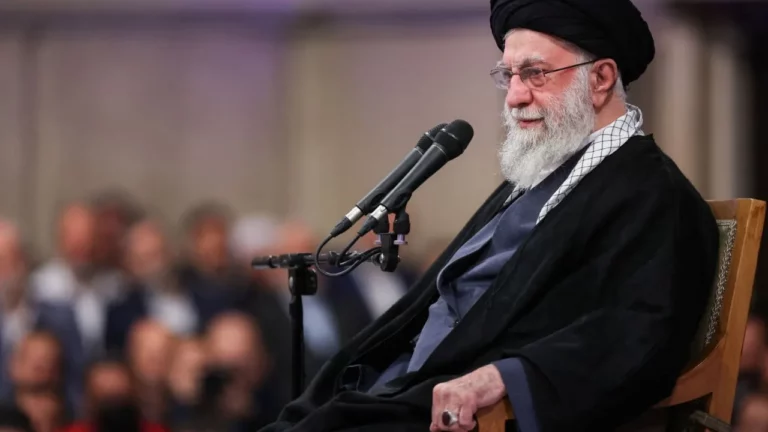 For the two front-runners in the Republican and Democratic presidential nomination races, there’s no place like home.
For the two front-runners in the Republican and Democratic presidential nomination races, there’s no place like home.
Polls show Democrat Hillary Clinton and Republican Donald Trump with double-digit leads heading into the New York primary on Tuesday, and both candidates are hoping that strong victories on their home court will reset their respective races and catapult them toward the finish line.
After tough losses-Trump was embarrassed in Wisconsin two weeks ago by Texas Senator Ted Cruz’s strong showing, and Clinton has lost eight of her party’s last nine nominating contests to Vermont Senator Bernie Sanders-the immediate path ahead for each candidate looks promising. If the two New Yorkers can close out their home state-Clinton is targeting minority voters, while Trump is trying to temper his emotional campaign-they’ll pick up needed momentum for the next round of primaries. Five northeast states hold contests next week, where both candidates should hold strong advantages.
“April 26 is the goal line,” Joel Benenson, Clinton’s pollster, said in an interview about the primaries next week. There are about 750 delegates up for grabs in the Democratic race over the next week, about 40 percent of the total remaining.
“At that point,” Benenson said, “our pledged delegate lead will be of a sufficient size that Senator Sanders just simply will not have enough real estate left.”
Clinton targeted black voters on Sunday at a Baptist church in Mount Vernon and at block parties in Washington Heights and Brooklyn, where she campaigned on pro-gun control messages and celebrated President Barack Obama’s two terms. It was a stark reminder of perhaps Clinton’s biggest advantage in the race-the wide support she enjoys among minority voters over Sanders.
“I am your neighbor, which makes me very happy,” she told the black church congregation. “I’m asking for you to be part of what I do as president.”
Nina Turner, a top Ohio Democratic Party official supporting Sanders, said she wished the Vermont senator had done more earlier in his campaign to reach out to minority communities. She pointed to an event he held in Ohio ahead of the primary there last month, where he captured the attention of a large crowd of minority voters.
“You could hear a pin drop when he was talking about being arrested as a 20-something, putting his body on the line for civil rights,” Turner said in an interview. “I wish he would have done more of that from the beginning, really pouring out his heart.”
Sanders’ campaign is largely looking past New York. The Vermont senator will be in Pennsylvania, one of the five states with contests next week, when votes are being counted in New York. Clinton will spend election night in New York City.
When Bloomberg Politics asked about Sanders’ prospects for winning New York, Jeff Weaver, his campaign manger, told reporters that Sanders just had to win most of the remaining states. Tad Devine, Sanders’ chief strategist, predicted his candidate would go on a winning streak in May to rival the run of victories he’s on now.
“We’re taking the long view of this,” Devine said.
While Clinton holds a lead in New York-a CBS News poll released Sunday showed her up 10 percentage points-the margin of Trump’s victory in New York may be even more important. Clinton is ahead of the pace she needs to maintain to win enough delegates for her party’s nomination, while Trump needs to accelerate his collection of delegates, according to a FiveThirtyEight.com tracker. Trump needs a convincing win on Tuesday to put more distance between himself and Cruz.
The former reality TV show host may do just that thanks to an unfamiliar strategy-for him-of staying largely out of the news. The New York native and veteran of the city’s sensational and savage tabloid culture has campaigned around the state during the past week, but without the accompanying headlines that usually follow.
The result: His lead in the national polls has climbed almost 8 percentage points since the Wisconsin contest, according to the RealClearPolitics average.
“It’s been a more disciplined campaign,” Russ Schriefer, a Republican political strategist who was senior adviser to Mitt Romney’s 2012 presidential run, said in an interview. “And they seem to be making some hires that will help them with the nuts and bolts they need to get to their delegates.”
On April 13, Trump hired Rick Wiley, Scott Walker’s former campaign manager, to be his political director. Days ahead of the defeat in Wisconsin, the billionaire added Paul Manafort, a veteran of party’s last contested convention in 1976, to lead his delegate effort.
On Sunday in New York, Trump held rallies in Staten Island, Cornwall, and Poughkeepsie. In Poughkeepsie, he said his supporters have subverted Republican leaders and spoke repeatedly about the importance of the upcoming primary vote.
“Here’s the story folks: , meaning , you’re getting ready to vote,” Trump said. “This is something really special. This is a movement.”
Trump’s victory in New York appears assured-he received 54 percent in the CBS poll released Sunday, more than Cruz and Ohio Governor John Kasich combined.
But Trump’s victory will be judged by how many delegates he collects. If he can win 50 percent of the vote in each of the state’s 27 congressional delegates, he’ll get every delegate. If he finishes below that threshold, delegates can also be awarded to his rivals.
Hoping to keep Trump under 50 percent, Kasich has upstate rallies planned on Monday in Syracuse and Schenectady. He campaigned on Friday and on Saturday on Long Island, where he spoke to a Jewish assembly at Great Neck Synagogue in what he called “one of the great moments in my lifetime.” In Manhattan, he ate pickles and chicken soup at an Upper East Side deli as part of what he joked is a “secret plan to delay the primary so I can spend more time eating in New York.”
Kasich can’t win enough delegates to win the nomination, and instead spent his time in New York rehearsing his speech for a floor fight: That polls show he’s the only remaining Republican who can beat Clinton. While in New York, Kasich picked up the endorsement of former three-term Governor George Pataki, who ended his own presidential campaign earlier this year, and Nevada Governor Brian Sandoval.
“Who can win in the fall?” Kasich asked during a town hall event on Friday in Utica. “If you can’t win in the fall, then you lose the Supreme Court, the White House, you lose the United States Senate, you lose from the statehouse to the courthouse. You’re just going to get wiped out.”
(c) 2016, Bloomberg · Michael C. Bender











One Response
“Yidden,wherever we are,are the heart and
eichus of the..population”
Once more (it happens more than most realize)
The world will pivot on what us
Jews are going to do.